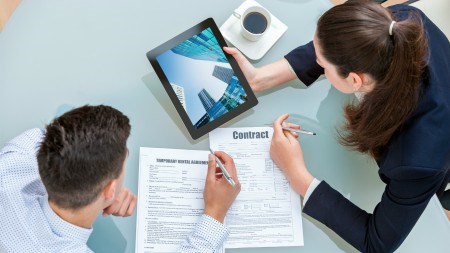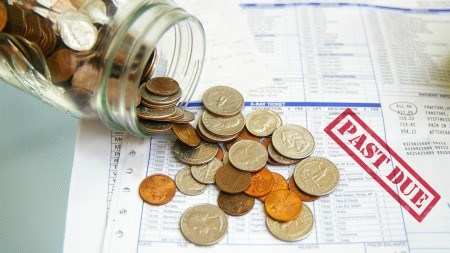Simon Bray gives useful advice on the Expresso Show on how to manage rental properties.
List a rental property for free here
VIDEO TRANSCRIPT:
How does the landlord go about finding the right tenant?
Reporter: Having focused quite a bit on renting and how one goes about finding the perfect rental to suit your specific needs to being the landlord and wanting to rent his or her property. Once a listing has gone live and prospective tenants have started viewing it, when it comes to the landlord how does the landlord go about finding the right tenant?
Simon Bray: Well, that's the most important question for every landlord. A rental apartment is only as good an investment as the tenants you put in it. If it's a great tenant, it's a great investment. If it's a poor tenant, it can cause all sorts of financial problems for the landlord. So, finding the right person is critically important and it's almost like interviewing someone for a job, so you shouldn't get sensitive about asking certain questions. Certainly meet the person face to face. A lot of landlords make the mistake of trying to do it just over the phone and they don't have a close enough relationship with the tenant to make the call that they need to make. You can check references, you can check employment, you can do a credit check on them with their permission and all of that will assist you in ultimately getting the right person for your rental apartment.
How important is a lease agreement?
Now, I think we've all been renters or tenants at some point in our lives but how important is a lease agreement?
Yeah, the lease agreement is ultimately the contract that the two parties enter into, and it's a really important part of a relationship. I think a lot of people don't take the time required at the beginning of a relationship to set up the ground rules and that's what the lease does. Legally speaking, you don't have to have a written lease but we certainly don't recommend that. Have a written lease, and make sure that all the terms and conditions that you need are in that lease. In fact, we've got a great example of one on our Advice Centre, so if anyone's looking for one they can go there, search for it and download it.
What needs to go into the lease agreement?
What are the kind of things however, just mention a few that need to go into the lease agreement, because it's something that I always insist on having, so that you don't have any niggly situations further down the line.
Look, you can put all sorts of things into a rental lease. You can talk about fittings, you can talk about who should put in an aircon and who splits the cost and all sorts of things like that.
Annual increases as well?
Yes, well those are the big four, right? The big four are what are you going to pay every month? What's your rental? Make sure that that's in there. How is that going to escalate at the end of the rental period? So, if they want to renew, is it a 10% increase, what does the escalation look like? Very important that the deposit is reflected in there, and the critical one that a lot people just gloss over is the inspection sheet. When you move in, make sure you walk through with your tenant. Take photos, write down all the different scuffs and dents and dings in the apartment to make sure that at the end of the period you've got something to compare it to and you can decide whether any damage has occurred.
You mentioned deposits as well. Now, how does the deposit come into play? How should it be handled? What is it used for? Or when the landlord gets the money is it like, "Who lives like this?" or do they put it away?
Unfortunately because you've got a lot of private landlords in South Africa there isn't a lot of understanding on what you're meant to do with a deposit. It's meant to sit in trust, effectively. So go into a bank account and earn interest until you pay it back to the tenant at the end of the lease. You certainly don't want to go and buy your next big screen TV with it and then not have the money when the tenant moves out. So, yeah, interest-bearing accounts, hang on to it. And of course, it's your insurance if the tenant defaults on their rental or damages the apartment or house.
How does one handle a bad tenant?
You know, the number of search queries we get on our Advice Centre, with people like, "What do I do? How do I handle this situation?" The real important advice is don't take matters into your own hand. Don't recut keys, don't turn off water or electricity or all that kind of thing. The courts really do look on that negatively. I think rather approach an attorney, get some legal advice and they'll point you in the right direction.




